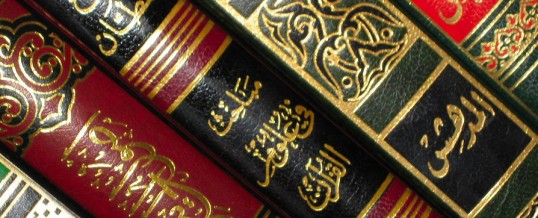
Aqidah عقيدة is an Islamic term meaning creed. Any religious belief system, or creed, can be considered an example of aqidah. However this term has taken a significant technical usage in Muslim history and theology, denoting those matters over which Muslims hold conviction. There are three main accepted schools of Sunni Aqidah: Ashari, Maturidi and Athari.
The Five Pillars of Islam (Arabic: أركان الإسلام) is the term given to the five duties incumbent on every Muslim. These duties are Shahadah (profession of faith), Salat (ritual prayer), Zakat (alms giving), Sawm (fasting during Ramadhan), and Hajj (pilgrimage to Mecca). These five practices are essential to Sunni Islam. Shi’a Muslims subscribe to eight ritual practices which substantially overlap with the Five Pillars.[1] Twelvers have five fundamental beliefs which relates to Aqidah.
The concept of five pillars is taken from the Hadith collections, notably those of Sahih Al-Bukhari and Sahih Muslim. The Qur’an does not speak of five pillars, although one can find in it scattered references to their associated practices.
Contents
Aqidahعقيدة
1: Shahada
2: Salat
3: Zakat
4: Sawm
5: Hajj
1:Shahada:
The Shahada شهادة is the basic creed or tenet of Islam (Submission): “‘ašhadu ‘en-lā ilāha ilāh-lāhu wa ‘ašhadu ‘anna muħammadan ‘abduho wa rasūluh”, or “I testify that there is no god but Allah, and I testify that Muhammad is the messenger of Allah”. As the most important pillar, this testament is a foundation for all other beliefs and practices in Islam. Ideally, it is the first words a newborn will hear, and children are taught as soon as they are able to understand it and it will be recited when they die. Muslims do not have to repeat the shahadah in prayer, but non-Muslims wishing to convert to Islam are required to recite the creed.[3] Technically the Shi’a do not consider the Shahadah to be a separate pillar.
2:Salat:
The second pillar of Islam is Salat, the requirement to pray five times a day at fixed times. The time of day to pray are at dawn, noon, mid-afternoon, sunset, and night fall. Each salat is performed facing towards the Kaaba in Makkah. Salat is intended to focus the mind on Allah; it is seen as a personal communication with Allah, expressing gratitude and worship. According to the Qur’an, the benefit of prayer “restrains [one] from shameful and evil deeds”.[Qur’an 29:40]
Salah is compulsory but some flexibility in the specifics is allowed depending on the circumstances. For example, in the case of sickness or a lack of space, a worshipper can offer salah while sitting, or even lying down, and the prayer can be shortened when travelling. The salah must be performed in the Arabic language to the best of each worshipper’s ability. If s/he cannot speak Arabic, then his/her native language can’t be used. The lines of prayer are to be recited by heart (although beginners may use written aids), and the worshipper’s body and clothing, as well as the place of prayer, must be cleansed.
/wiki/Image:Mosque.Qibla.01.jpg /wiki/Image:Supplicating_Pilgrim_at_Masjid_Al_Haram._Mecca,_Saudi_Arabia.jpg
/wiki/Image:Supplicating_Pilgrim_at_Masjid_Al_Haram._Mecca,_Saudi_Arabia.jpgThe hajj to the Kaaba, in Mecca, is an important practice in Islam.
3:Sawm:(Roza) is a Muslim religious observance that takes place during the ninth month of the Islamic calendar, believed to be the month in which the Qur’an began to reveal. It is the Islamic month of fasting in which Muslims don’t eat or drink anything and abstain from intercource or ejaculation (not a wetdream)from sunrise ’till sunset. Fasting is meant to teach the person patience and humility.
The name “Ramadan” is taken from the name of this month; the word itself derived from an Arabic word for intense heat, scorched ground, and shortness of rations. It is considered the most venerated and blessed month of the Islamic year. Prayers, fasting(sawm), charity, and self-accountability are especially stressed at this time; religious observances associated with Ramadan are kept throughout the month.
4:Zakaat (Arabic: زكاة IPA: [zækæːh] zakaat or zakāh, has the implied meaning of ‘grow’, ‘purify’, or ‘foster’).
It is often compared to the system of charity and alms but unlike these older systems, it serves principally as the welfare contribution to poor and deprived people in the Muslim lands, although others may have a rightful share. It is the duty of the state not just to collect it; but to distribute it fairly as well.
5:Haj:
The Hajj is a pilgrimage that occurs during the Islamic month of Dhu al-Hijjah to the holy city of Mecca, and derives from an ancient Arab practice. Every able-bodied Muslim is obliged to make the pilgrimage to Mecca at least once in their lifetime if they can afford it.[20] When the pilgrim is around ten kilometers from Mecca, he must dress in Ihram clothing, which consists of two white sheets. Females are not required to make the pilgrimage to Mecca, as the Hajj is only mandatory for the men. After a Muslim male makes the trip to Mecca, he is known as a hajji( one who made the pilgrimage to Mecca).[21] The main rituals of the Hajj include walking seven times around the Kaaba, touching the Black Stone, traveling seven times between Mount Safa and Mount Marwah, and symbolically stoning the Devil in Mina.
The pilgrim, or the haji, is honoured in their community. For some, this is an incentive to perform the Hajj. Islamic teachers say that the Hajj should be an expression of devotion to Allah, not a means to gain social standing. The believer should be self-aware and examine their intentions in performing the pilgrimage. This should lead to constant striving for self-improvement[22]
A pilgrimage made at any time other than the Hajj season is called an Umrah, and while not mandatory is strongly encouraged.
DEC
